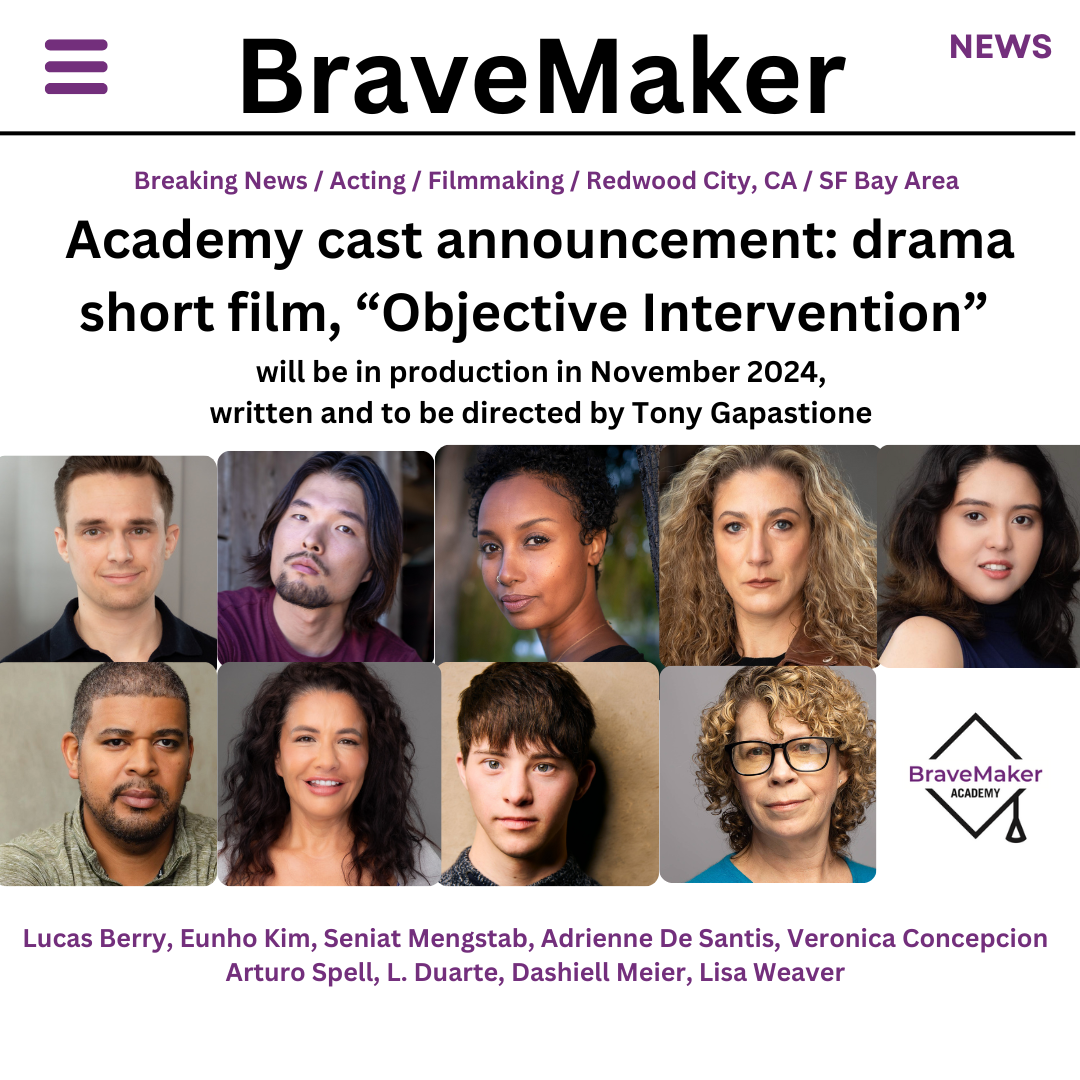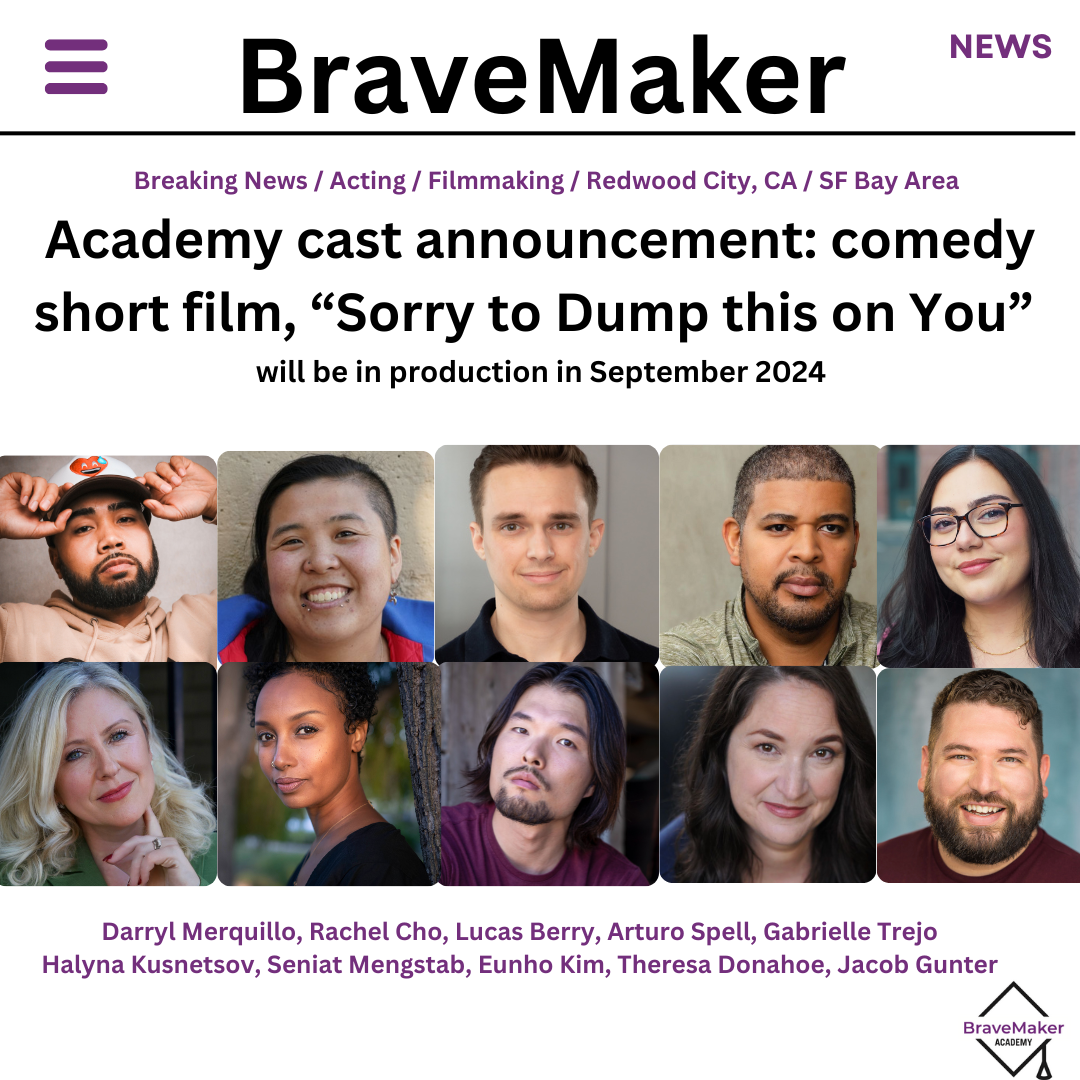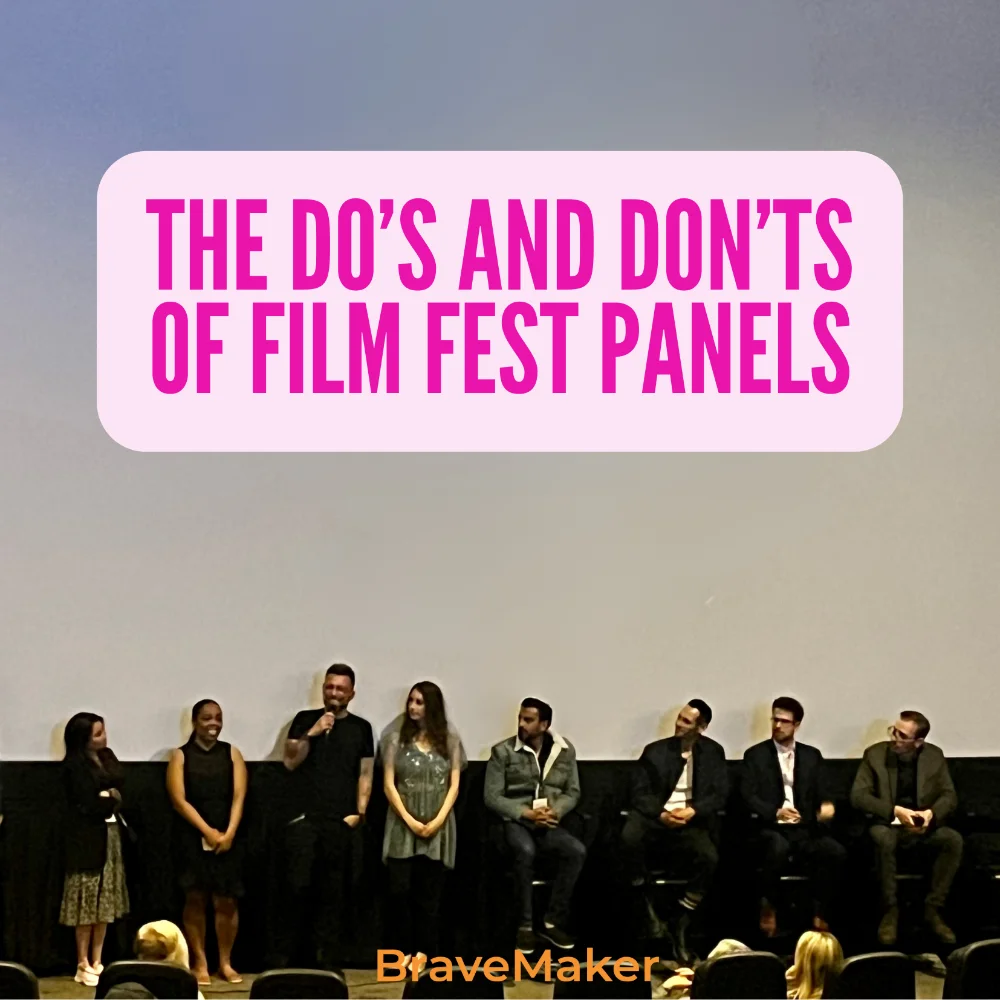What do producers do again? EVERY.THING.
I recently finished producing a new short film with our BraveMaker Academy. It was so fun. I started a producer workshop and had a great crew of people working on INFECTIOUS THEATRE, a mockumentary I wrote that will be out some time in July (hint hint at our Film Fest).
During rehearsal someone noted that on our set, the TABLE used in a scene was super squeaky. Who’s gonna fix it? Everyone looked around. Uh. I guess, me. Twenty-four hours later I was under the table with my drill and some WD-40…and BOOM… the squeak was gone.

To be honest. I thought, could I find someone else to do this? Maybe I should hire a HANDYMAN? I had a million other things to do. but I didn’t have the time or the money to get someone else. So I just did it myself.
That’s the attitude I think you need to have as a PRODUCER. Producers do it all. At indie levels, sometimes we aren’t just removing squeaks, we are getting the food, setting up the CRAFT SERVICES TABLE and maybe even doing wardrobe.

Here are some of the responsibilities of a producer:
- Development: Producers may be involved in the initial stages of a project, helping to develop the concept, work with the screenwriter, acquire rights to source material (such as books or scripts), and assemble a creative team.
- Financing: Producers often secure funding for the film by pitching the project to investors, studios, or production companies. At my level of indie filmmaking no budget/micro-budget filmmaking I do a lot of my own producing AND use my own money and in most cases doing anything I can to get the film completed. Producers at indie levels should be ready to crowd-fund (hit up all your friends and family) and also negotiate contracts and manage budgets to ensure the project stays on track financially. Of course, when you’re working on studio levels, there’s more resources to work with.
- Hiring: Producers are typically involved in hiring key personnel for the production, including the director, cast, and crew. They may collaborate with casting directors, agents, and other industry professionals to find the right talent for the project. For most of my projects I have been writer/director and also producer (which in most cases means I have to do a lot of everything, including finding the funds.
- Creative input: Producers provide creative input throughout the filmmaking process, working closely with the director and other creative team members to shape the vision of the film. This may involve giving feedback on scripts, providing input on casting decisions, and offering guidance on visual and thematic elements.
- Logistics: Producers oversee the logistical aspects of production, including securing locations, obtaining permits, arranging transportation and accommodations for cast and crew, and coordinating schedules to ensure smooth operations on set. This is a huge for low budget, indie films. A good producer supports the director’s vision and protects the story so that the director can work with actors to bring out great performances.
- Problem-solving: Producers are often tasked with solving problems that arise during production, such as budget overruns, scheduling conflicts, or creative differences among team members. They must be resourceful and adaptable in finding solutions to keep the project moving forward. A good producer cares about all people on set and is a trustworthy person who can get things down, take responsibility and not cast blame or throw others under the buss in stressful situations.
- Post-production: This is one area I see many producer neglect when it comes to indie films. actors get to leave set when production wraps and not really think about all the details required to complete the film. But producers need to be involved in the post-production process, including editing, sound design, visual effects, and scoring. They need to watch cuts and make notes and may work closely with editors, composers, and other post-production professionals to ensure the final product meets the vision of the director.
- Marketing and distribution: Producers play a role in marketing the film to audiences and securing distribution deals with studios or distributors. They may attend film festivals, coordinate promotional events, and work with marketing teams to generate buzz and maximize the film’s commercial potential.

Producers play a crucial role in the filmmaking process, overseeing various aspects from development to distribution. Their responsibilities can vary depending on the type of producer and the specific stage of production, and on bigger sets there are different PRODUCER ROLES. each with distinct roles and responsibilities. Here are some of the common types of producer roles:
- Executive Producer: The executive producer (EP) is often responsible for providing the initial funding for the project or securing financing from investors or they are a funder. They may not be involved in the day-to-day production activities but typically have a significant financial or creative stake in the project. Executive producers may also help with securing distribution deals or handling legal and contractual matters. Sometimes an EP can just be in name only. They may be the STAR of the movie/show and just get the credit because that’s how Hollywood works!
- Producer: The (overall) producer is typically the key individual responsible for overseeing all aspects of the production, from development to distribution. They may be involved in securing financing, hiring key personnel, managing budgets and schedules, providing creative input, and ensuring that the project stays on track from start to finish as I detailed above.
- Line Producer: The line producer (LP) focuses on the logistical aspects of production, such as budgeting, scheduling, and day-to-day operations on set. I often think about LP’s as the ones who deal with all the LINES in the budget. They work closely with the director and other key personnel to ensure that the production stays within budget and on schedule while also managing resources effectively.
- Co-Producer: A co-producer works alongside the main producer(s) and may take on various responsibilities depending on the needs of the project. They may contribute financially, help with creative decisions, or assist with specific aspects of production such as securing locations or managing post-production. A co-producer may also be a newer producer or emerging in the industry, a producer who is growing credits and getting experience.
- Associate Producer: An associate producer typically assists the main producer(s) with various tasks throughout the production process. This may include research, administrative work, coordinating logistics, or providing support in other areas as needed. Sometimes this role is given to someone who helps fund the film at a certain level.
- Production Assistant: While not technically a producer role, production assistants (PAs) play a vital role in supporting the production team on set. They may assist with various tasks such as setting up equipment, running errands, coordinating extras, or helping with paperwork. Basically a PA does anything and everything on set to help/support the production.
These are just a few examples of the various producer roles in the film industry, and the specific responsibilities of each role can vary depending on the size and scope of the production as well as the preferences of the individuals involved. But always remember, producers PRODUCE. They make the film. When a film WINS the BEST PICTURE at the Academy Awards, it’s the producers who get the little gold men!
Overall, producers serve as the driving force behind a film project, overseeing its development from concept to completion and ensuring that it reaches its intended audience.
Last thing. Producers SET THE TONE for the set. They work with the DIRECTOR and all the crew and key leaders of each department.
Watch this video from Belgica Rodiguez who produced the short film we just made at BraveMaker.






